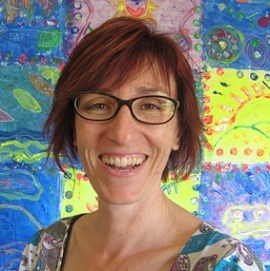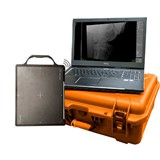The findings by Dr Sally Robinson from the University’s Centre for Children and Young People, in the School of Education, are contained in the issues paper, 'Enabling and Protecting: Abuse and neglect of Children and Young People with Disabilities'.
"There is a range of evidence to show that abuse and neglect of children and young people with disability is at times poorly recognised, and sometimes perpetrated, by people in a position to take action against it," Dr Robinson said.
"This report paints a disturbing picture of the marginality of children with disability who experience harm at the hands of others."
Evidence documented by Dr Robinson includes children being denied the right to go to the toilet because of a lack of appropriate support; using enclosures or pens in schools to deal with angry or unsettled students; failure to provide adequate fluids or assist a highly dependent child to remove his jumper on an extremely hot day; a bus driver tying up a child on the way home from school because she was difficult to manage; and a child returning from overnight respite who is dirty and has someone else's clothes on.
Dr Robinson said there was currently no data in Australia on the prevalence of abuse and neglect of children and young people with disability.
According to international research, children with disability have three times the increased risk of being abused compared to children without disability. Furthermore, children with profound communication and behavioural impairments are at increased risk of being abused or neglected.
Children with Disability Australia executive officer Stephanie Gotlib said the protection and care of children and young people was of great importance.
"Too often abuse and neglect are treated as policy issues by schools and disability services, but in reality they are crimes. The paper highlights clear distinctions between these two approaches and makes recommendations for better ways of preventing abuse," Gotlib said.
She said a range of assumptions and expectations about disability could lead to higher vulnerability and greater incidence of abuse of children with disability.
"For too long instances of abuse and neglect have been dismissed as isolated events or the result of staff who are 'bad apples', which has meant that opportunities to address the issues systemically are lost," Gotlib said.
Dr Robinson said the paper aimed to increase the understanding of this critical social problem for people who were in a position to make change.
"While some strategies exist which promote the rights and interests of children and of people with disability more broadly, the research identifies an urgent need for these to be drawn together coherently and systematically," she said.
"Future national priority areas may involve two parallel and interconnecting streams of work in promoting inclusion and protecting the personal safety of children and young people with disability."
Children with Disability Australia agreed.
"The issue will only be addressed if we as a community look at the inherent inequality which exists for people with disability and how this increases vulnerability to abuse," Gotlib said.
















